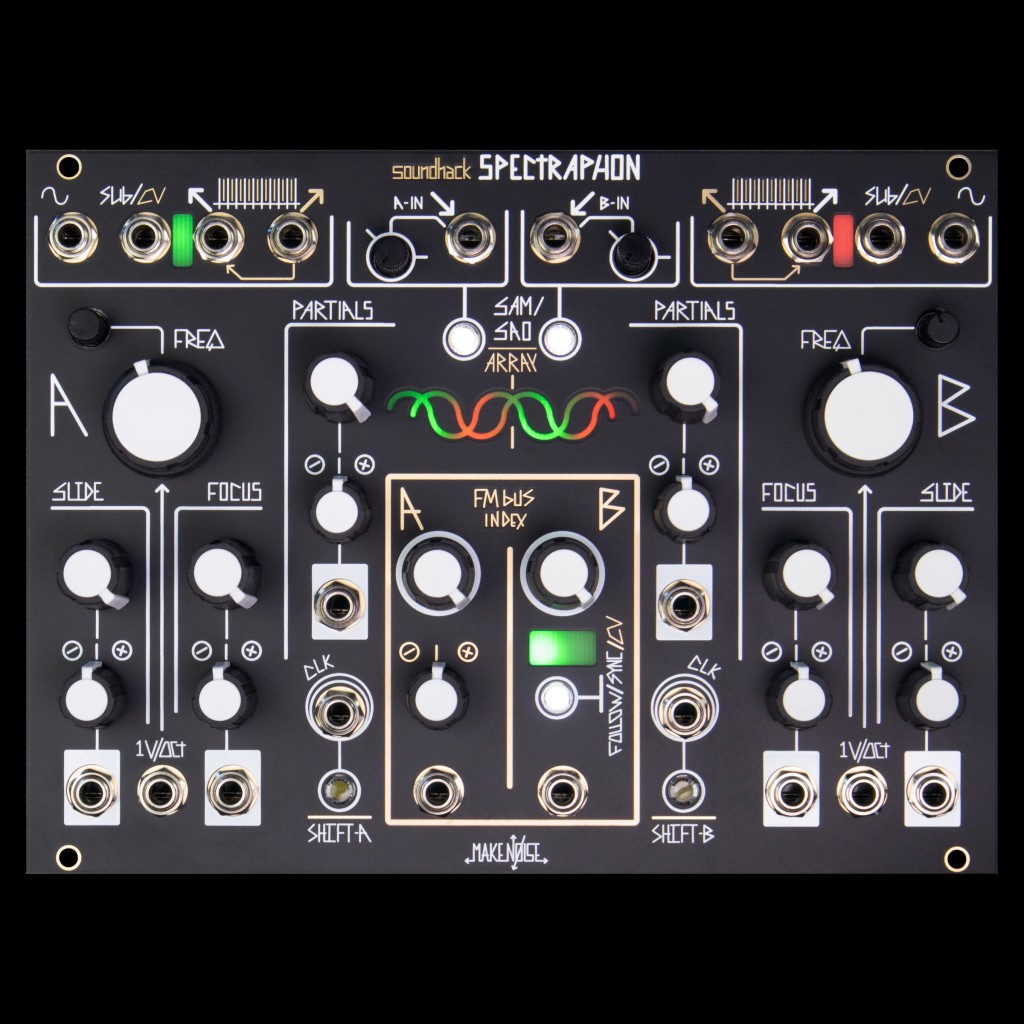The pandemic apparently brought together modular house Make Noise, instrument maker Jeff Snyder, and soundhack creator Tom Erbe. Spectral analysis/resynthesis, once just an esoteric software process, is now in a beautiful module. Get your hands on some new sounds.
The results are more out-there than you think – check the demo.
The idea of spectral resynthesis is simple: analyze an audio input, then synthesize new sounds based on the analysis. Because of that input involved, though, you’re open to producing all kinds of new sounds by feeding in stuff from the outside.

Those spectral tricks had been in Tom Erbe’s repertoire for decades, back to versions in his lovely free SoundHack. (I have special affection for that, as it was the first real DSP software I ever used, while in high school. Not to date Tom. Erm, or me. Oops.)
We could get into specs, but look at the panel. Make Noise together with Jeff have done a beautiful job of making this musical and intuitive. You have nice big knobs to dial in frequency with focus and slide, twist your way through partials, and and frequency modulation.
You’ll also notice it has a heck of a lot of jacks on it. That’s because you have a full eight outputs, including two independent oscillators, separate sub-oscillator and modulation outputs, dual input, and tons of modulation control.
It’s really a sign of what a powerful digital platform can do even inside the analog patching paradigm.
They do say they’ve been inspired by existing hardware, too, which I think is reflected in the control layout:
It is inspired by classic electronic musical instruments of the past, including spectral processors, additive synthesis, vocoders, and resonators especially the Buchla 296 and Touché, but it takes a physical form more resembling the classic analog dual complex oscillator in the lineage of the Buchla 259 and the Make Noise DPO.
But it takes some of those smart musical ideas and does something new with them.
The full overview and demo-performance Sarah Belle Reid will go live shortly after I publish this:
And there’s this nicely experimental performance video, where they show off that they’re not as flat as Berlin. And it sounds initially like – someone is having a freak-out in an alien spaceship galley, throwing plates over top of a Martian mating dance.
Then things calm down and you get some really beautiful, evolving sounds. I love the full range. I temporarily thought YouTube had autoplayed a new video, so – stick with it for the full gamut of Brett’s sounds.
US$599. 34HP.
Specs:
- Dual Digital VCO with eight simultaneous outputs, as well as two audio inputs, two gate inputs and ten CV inputs
- Built on Make Noise’s new digital hardware platform, the most powerful digital module we have yet created
- Coded by Tom Erbe of soundhack
- Spectral Amplitude Modulation (SAM) creates spectral oscillations based on continuous analysis of the audio at the input
- Spectral Array Oscillation (SAO) creates spectral oscillations based on stored sets of spectra called Arrays, which are created in the SAM mode
- Each of the two VCOs operates independently in SAO or SAM, in any combination
- High definition internal Frequency Modulation Bus with easy access to Harmonic Ratios via the Tuning Beacon
- Sub-Oscillator/CV outputs give access to unique sub-oscillator shapes, envelope following, or clockable modulation sources
- Sine and Sub operate independent of FM Bus modulation.
- Follow and Sync operations on Side B for ease of use in dual oscillator patches, tuned FM, hard sync sweeps etc.




